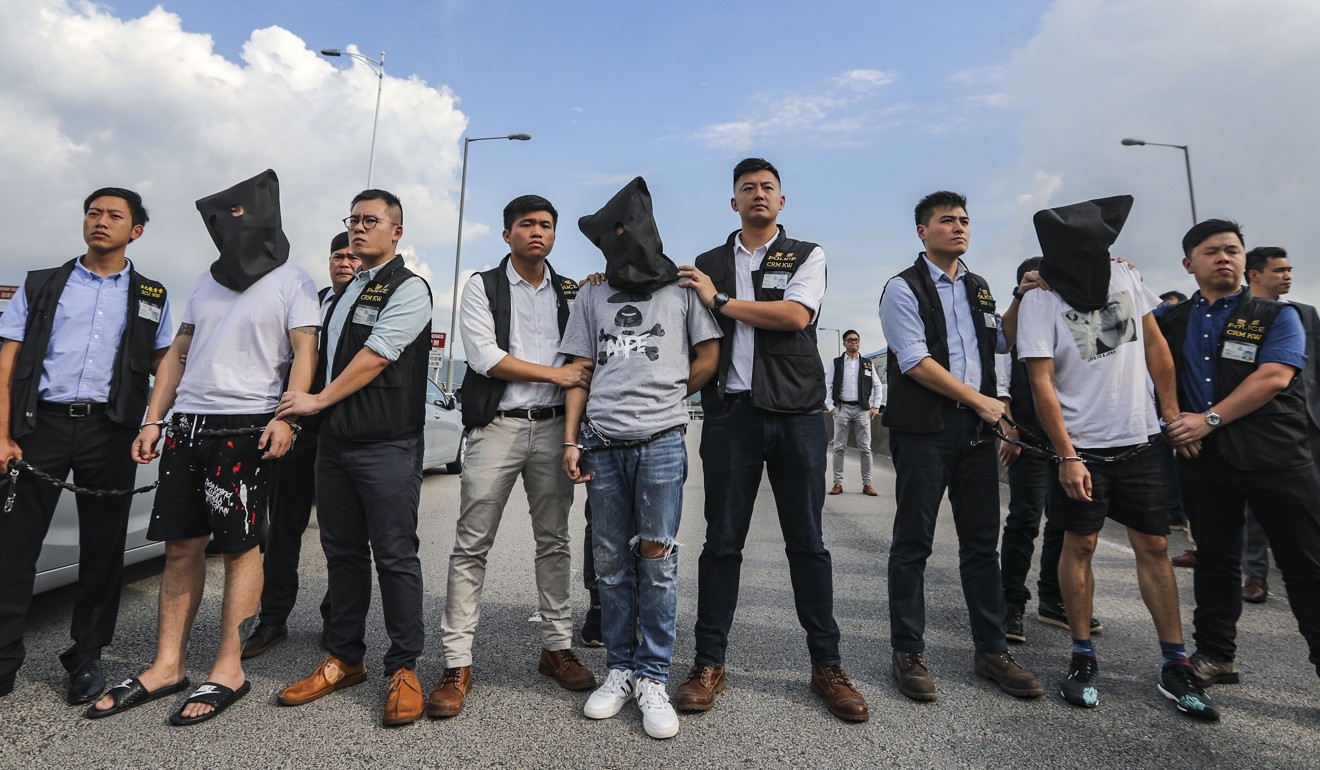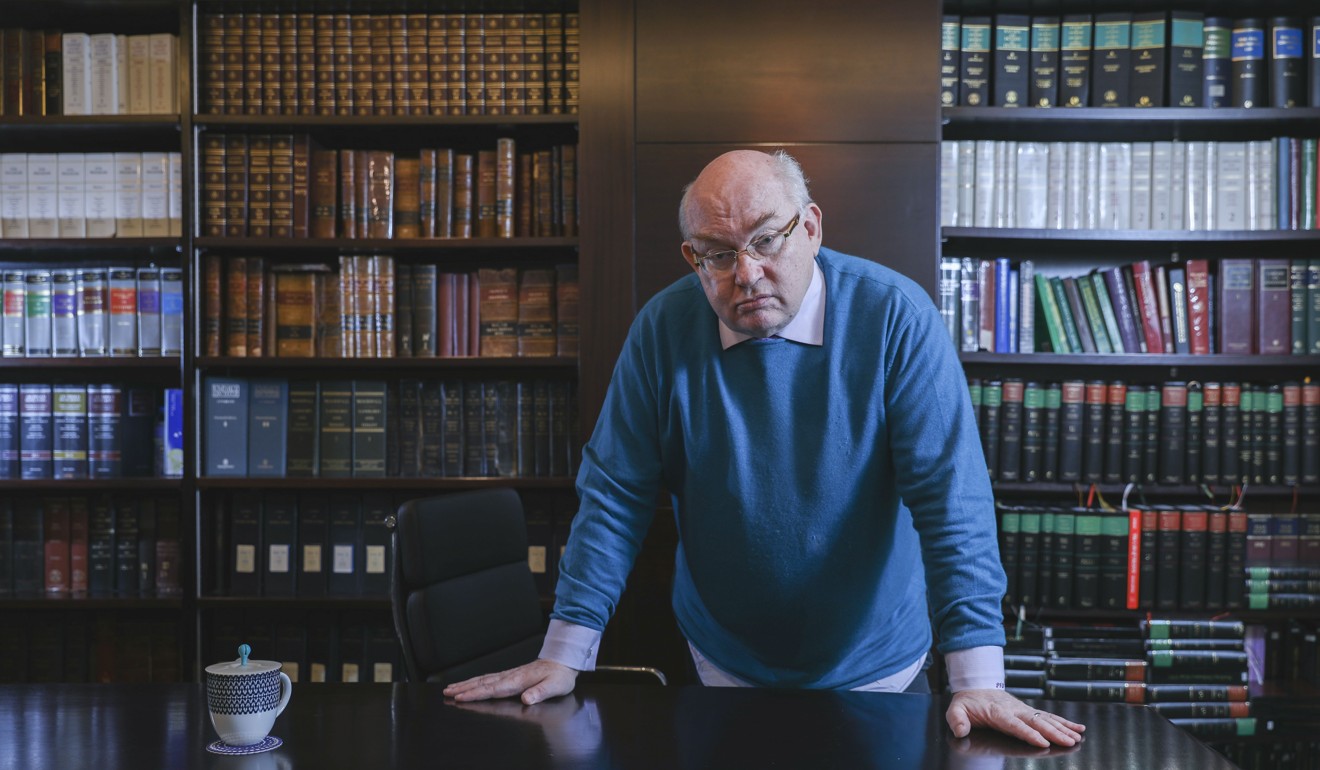
Fugitives should only be extradited to Taiwan, not mainland China, Hong Kong opposition lawmakers and lawyers’ group urge government
- They fear judicial barrier under the ‘one country, two systems’ principle will be lowered under proposed changes
- Security minister John Lee dismisses their counterproposal during meeting with Civic Party
Hong Kong’s pro-democracy lawmakers and the head of the Bar Association want the government to work out an extradition arrangement with Taiwan instead of changing the law to include mainland China, Macau and other parts of the world.
Their main concern is that the mainland might take advantage of the change to seek the transfer of people in Hong Kong who are wanted across the border, and the lawmakers have little faith in the legal system there.
The extradition issue has been in the spotlight since the high-profile case of a young Hong Kong woman, Poon Hiu-wing, who disappeared in Taiwan during a holiday with her boyfriend Chan Tong-kai last February.
When Chan returned to Hong Kong alone, Poon’s worried parents told police. Taiwanese police found the woman’s decomposing body in Taipei last March.

Taiwanese authorities suspect Chan may have killed her. They asked Hong Kong to send him back to them to help in investigations, but he remains in Hong Kong because there is no extradition arrangement.
Instead, Chan faces charges in Hong Kong related to possession of Poon’s bank card, smartphone, camera and large sums of cash.
The convener of the democratic camp, Claudia Mo Man-ching, said opposition lawmakers had deep sympathy for Poon’s family, but felt strongly that any new case-by-case extradition arrangement should apply only to Taiwan.
Mother of Hong Kong woman killed in Taiwan pleads for change in law
She said the camp would oppose extending the transfer of fugitives to the mainland.
“The democrats are extremely worried that this new proposed extradition arrangement could prove a Trojan horse for Hong Kong, and may lower the judicial barrier under our ‘one country, two systems’ principle,” Mo said, referring to the framework under which Beijing governs the city.
Legal sector lawmaker Dennis Kwok of the Civic Party cautioned that the change could open a floodgate of requests to hand over fugitives to the mainland and jeopardise Hong Kong’s status as financial and legal hub.
Bar Association chairman Philip Dykes warned that if Hong Kong went ahead with the case-by-case approach, there could be a knock-on effect for its relations with 20 countries which already had extradition arrangements or others in discussion to have the same. China would be allowed to request the extradition of nationals of those countries who were in Hong Kong, he said.

He stressed that any extradition agreement must ensure that fugitives sent from Hong Kong would face a legal system of comparable standard in the jurisdiction requesting their transfer. Dykes questioned whether the mainland fitted that criteria.
Hong Kong’s two laws related to extradition, the Fugitive Offenders Ordinance and Mutual Legal Assistance in Criminal Matters Ordinance, exclude the transfer of fugitives to or from “any other part of the People’s Republic of China”.
It is already difficult for Hong Kong and Taiwan to develop normal communications, let alone seal a deal between governments
The government has proposed establishing a case-by-case extradition mechanism with any jurisdiction that does not have a treaty with Hong Kong.
Dykes and Mo said Hong Kong could make a special arrangement to kick-start a formal deal with Taiwan. Mo added that opposition lawmakers were open to an arrangement that would either be on a one-off or long-term basis.
But security minister Lee rejected having a special arrangement with Taiwan. During a meeting with the Civic Party and Mo, he said the proposed mechanism would plug the loophole exposed in the Taiwan case. He also dismissed a suggestion to set a time limit on the mechanism so it would expire at some point after the Taiwan case was dealt with.
While the security chief did not reveal Beijing’s view of Hong Kong’s willingness to talk with Taiwan, a source said Lee and a top aide gave their vote of confidence to the mainland’s legal system.
It will be an uphill battle for the pro-democracy camp to press on with its proposal, as it holds only 25 of the 69 seats in the legislature, including the Civic Party’s five lawmakers.
The government is expected to table the bill in April, and push it through before the legislature’s summer break in July.
Pro-Beijing lawmaker Martin Liao Cheung-kong, a barrister, called the pan-democrats’ suggestion to negotiate with Taiwan impractical.
“It is already difficult for Hong Kong and Taiwan to develop normal communications, let alone seal a deal between governments,” Liao said, referring to sensitive cross-strait relationships.
New People’s Party chairwoman Regina Ip Lau Suk-yee, a former security minister, also dismissed the pan-democrats’ idea.
Pointing out that Beijing was in charge of Hong Kong’s foreign affairs, she said it would be tough to set any agreements between the city and Taiwan.
Another former security minister, Lai Tung-kwok, sought to allay critics’ concerns that Hong Kong’s courts would be pressured to extradite fugitives who were political dissidents, calling for faith in the city's judicial system.
“We have to fully trust judges to decide only on legal perspectives, that's the foundation of our legal system,” he said.
Fugitives would receive no less legal protection before being handed over and would be free to seek asylum based on torture claims.


